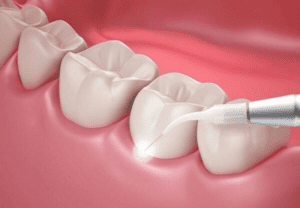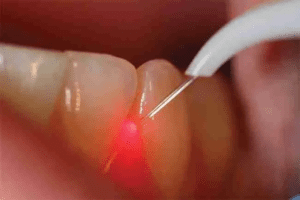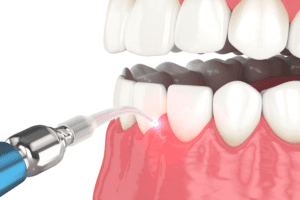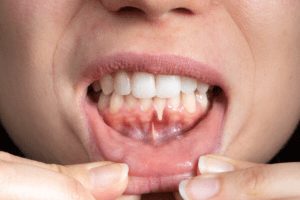What is the best type of dental implants for you? The answer depends on various factors such as your oral health, bone density, and personal preferences. Understanding these elements can help guide you toward the most suitable option for your needs.
Best Type of Dental Implants
When considering the best type of dental implants, it’s essential to understand the various options available. Dental implants generally fall into two main categories: endosteal and subperiosteal. Endosteal implants are the most common and are placed directly into the jawbone, providing a sturdy foundation for artificial teeth. Subperiosteal implants, on the other hand, are positioned under the gum but above the jawbone, making them suitable for individuals with minimal bone height. Each type has its unique characteristics and suitability depending on individual dental needs and bone structure.
Exploring the best type of dental implants involves understanding how these options can cater to different dental conditions and preferences. Factors such as bone density, oral health, and personal comfort play a significant role in determining the appropriate choice. For those interested in learning more about how age might influence implant decisions, the article “Are Dental Implants the Best Option for Seniors?” provides additional insights into considerations for older adults. Understanding these types can help in making informed decisions about dental health and restoration options.“`html
Implant Material Options
When considering the best type of dental implants, understanding the various implant material options is crucial. Dental implants are typically made from titanium or zirconia, each offering unique benefits. Titanium is widely used due to its strength and biocompatibility, allowing it to integrate well with the jawbone. On the other hand, zirconia is a metal-free alternative that provides a more natural appearance, which can be appealing for those concerned about aesthetics. Both materials have been extensively studied and are known for their durability and effectiveness in dental restoration.
Choosing the right implant material depends on individual needs and preferences, as well as the specific dental situation. Factors such as bone density, gum health, and personal sensitivities can influence the decision. It’s important to discuss these options with a dental professional to determine which material aligns best with your oral health goals. For more information on comprehensive dental solutions, visit our page on All-on-4 Dental Care Harrisonburg.
“`
Implant Procedure Overview
Understanding the implant procedure is crucial when considering the best type of dental implants for your needs. The process typically begins with a comprehensive evaluation by a dental professional to assess your oral health and determine the most suitable implant type. This is followed by a surgical procedure where the implant is placed into the jawbone, serving as a sturdy foundation for the replacement tooth. Over time, the implant fuses with the bone in a process called osseointegration, ensuring stability and durability. The final step involves attaching an abutment and crown to complete the restoration, resulting in a natural-looking and functional tooth replacement. Each stage of the procedure is designed to ensure that the chosen dental implant type meets individual needs and provides long-lasting results.
Bone Health Considerations
When considering the best type of dental implants, it’s essential to take into account the health of your jawbone. Bone health plays a crucial role in the success of dental implants, as the implants need a strong and healthy bone structure to anchor securely. If the jawbone is not dense or strong enough, it may affect the stability and longevity of the implants. Understanding your bone health can help determine the most suitable implant option for you. For more information on dental implants and bone health, you can consult with experts at Shenandoah Valley Implant Institute, where experienced Harrisonburg Periodontists are available to guide you.
Implant Longevity Factors
When considering the best type of dental implants, understanding the factors that influence their longevity is crucial. The lifespan of dental implants can be affected by various elements, including the quality of the implant material, the skill of the dental professional performing the procedure, and the patient’s oral hygiene practices. Additionally, individual health conditions, such as bone density and gum health, play a significant role in determining how long dental implants will last. While dental implants are designed to be a long-term solution for tooth replacement, these factors collectively contribute to their durability and effectiveness over time.
Cost of Dental Implants
When considering the best type of dental implants for your needs, understanding the cost is crucial. Dental implant costs can vary significantly based on several factors, including the type of implant, the materials used, and the complexity of the procedure. On average, a single dental implant can range from $3,000 to $5,000, but this price can increase if additional procedures like bone grafting are necessary. It’s important to consult with your dental professional to get a detailed estimate tailored to your specific situation. While the initial investment may seem high, many find that the long-term benefits and durability of choosing the best type of dental implants make it a worthwhile investment in their oral health. Additionally, some dental insurance plans may cover part of the cost, so it’s advisable to check with your provider for potential coverage options.
Recovery and Healing Process
When considering the best type of dental implants for your needs, understanding the recovery and healing process is crucial. After the implant procedure, the initial healing phase typically lasts a few weeks, during which the implant integrates with the jawbone in a process called osseointegration. This period is vital for ensuring the stability and longevity of the implant. Patients may experience mild discomfort, swelling, or bruising, which can be managed with prescribed medications and proper oral hygiene. Following your dentist’s post-operative care instructions is essential to promote healing and prevent complications. The complete recovery process can take several months, depending on individual health factors and the specific type of implant used. By choosing the best type of dental implants tailored to your oral health needs, you can enhance the success rate and efficiency of your recovery journey.
Implant Maintenance Requirements
When considering the best type of dental implants for your needs, understanding the maintenance requirements is crucial for long-term success. Dental implants, regardless of type, require diligent oral hygiene practices to ensure their longevity and functionality. Regular brushing and flossing are essential to prevent plaque buildup around the implant site, which can lead to peri-implantitis, a condition similar to gum disease. Additionally, routine dental check-ups are necessary to monitor the health of the implants and surrounding tissues. Your dentist may recommend specific cleaning tools, such as interdental brushes or water flossers, to effectively clean around the implants. By adhering to these maintenance guidelines, you can maximize the lifespan and performance of the best type of dental implants suited for you.
Consultation with Dental Professionals
When determining the best type of dental implants for your needs, a consultation with dental professionals is an essential step. During this consultation, experienced dentists or oral surgeons will evaluate your oral health, bone density, and specific dental requirements to recommend the most suitable implant option. They will discuss various types of dental implants, such as endosteal, subperiosteal, or zygomatic implants, and explain how each can address your unique situation. This personalized approach ensures that you receive the best type of dental implants tailored to your individual needs, ultimately leading to a successful and long-lasting outcome. Engaging with knowledgeable professionals not only provides clarity but also instills confidence in your dental implant journey.
Conclusion
Choosing the best type of dental implants is a personal decision that requires careful consideration; for more information or to schedule a consultation, call 540-434-8575 or visit our [Google Maps page](https://maps.app.goo.gl/945oL7sG3NwGcydk7) to read reviews.





